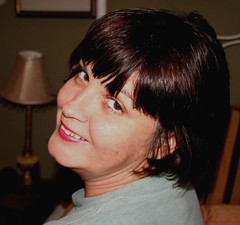
We were also relatively close to "Cockpit Country" where the Maroon village of Accompong is located. The Jamaican Maroons can trace their community back to the early 1700's. The legends of these largely West African men and women who fought the region's first guerilla warfare in defence of their freedom are told and retold throughout the region. The community is largely self-sufficient and lives Accompong high up in the mountains. We are not sure what to expect when we arrive in the village. The Cockpit Region is known for its giant limestone sinkholes and is most dramatic when viewed from the air. The founding Maroons used this landscape to their advantage and their ability to navigate and move over this terrain is now legendary. When we pull in after a near two-hour drive from the coast, we are fortunate to land in the hands of guide Tyrone Huggins.
The interesting thing about Accompong is that, superficially, it appears like any other village that you pass while travelling through the Jamaican countryside.
But it is very different. Large signs are found all throughout the village chronicling the history of the Maroons. No doubt these signs are for people like us, tourist passing through, but what an affirming role they must play in village life as each child walks past these tangible signs of his history and belonging.
 The traditions are deeply entrenched. The Maroons are still autonomous and self-governing. Their leader, known as The Colonel. When we arrive, it is mere weeks before an election and we are told that the village is in the midst of an active campaign. The Jamaica Election Board will come to the village to assist bit it is a largely domestic operation. Interestingly there is no courthouse. Infractions are brought before The Colonel and if they are severe, the individual is to be handed over to the government.
The traditions are deeply entrenched. The Maroons are still autonomous and self-governing. Their leader, known as The Colonel. When we arrive, it is mere weeks before an election and we are told that the village is in the midst of an active campaign. The Jamaica Election Board will come to the village to assist bit it is a largely domestic operation. Interestingly there is no courthouse. Infractions are brought before The Colonel and if they are severe, the individual is to be handed over to the government.
Most babies are delivered without medical intervention (there is a community nurse) and people routinely live past 100 years old. Crime is a non-issue. We are told by Tyrone that there has been just one murder in the community.
"In the last year?" I ask.
"Ever." comes the prompt reply.
There is a strong sense of "Revival" or "Poco" as it is sometimes called. This spiritualist religion was brought from Africa and incorporated into life in the West Indies. It is still a major part of life not just among the Maroons but everywhere in Jamaica.
The use of medicinal herbs is widespread and traditions, largely preserved from their West African origin, have been carefully preserved. There is no doctor in this village of some 800 people. No village clinic. And a glance at the graveyard proves that people live into their nineties and beyond.
 Like most communities, there is a strong sense of the spiritual. The Accompong United Church of Jamaica and the Cayman Islands is located just behind the cemetery and next to a mammoth mango tree. The co-existence of Revival and Christianity here in this small community is a reflection of the spiritual practice of most of Jamaica.
Like most communities, there is a strong sense of the spiritual. The Accompong United Church of Jamaica and the Cayman Islands is located just behind the cemetery and next to a mammoth mango tree. The co-existence of Revival and Christianity here in this small community is a reflection of the spiritual practice of most of Jamaica.


 The Peace Treaty was signed between Captain Cudjoe and the British on March 1st, 1738 more than half-century before the abolition of slavery. The original treaty was signed in blood.
The Peace Treaty was signed between Captain Cudjoe and the British on March 1st, 1738 more than half-century before the abolition of slavery. The original treaty was signed in blood.








2 comments:
Thanks Comella. :)
Always a lovely surprise when I see your blog updated. Missed your "voice".
Please
keep writing.
vicki
Post a Comment